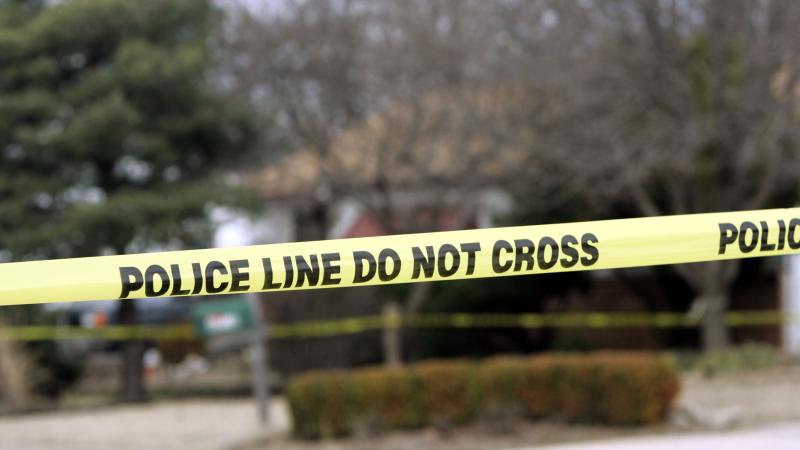Masks forever? Feds, medical world double down on mandates despite evidence they don’t work
CDC director suggests agency's guidance on masking will not be influenced by growing scientific doubts about its efficacy.
Decades of research finding that face masks provide little to no real-world benefit against respiratory viruses, recently reaffirmed by a "gold standard" Cochrane meta-review of randomized controlled trials, aren't budging the faith of federal regulators and the U.S. medical establishment.
The Occupational Safety and Health Administration could impose some form of mask mandate in healthcare settings permanently, assuming the Office of Information and Regulatory Affairs approves its final rule submitted in December.
The public can't review the submission because "internal deliberations are ongoing, and it has not yet been finalized," an OSHA spokesperson told Just the News. Stakeholders seem to believe it will mandate masking, judging by the pro-mandate National Nurses United cheering the agency's submission.
Andrew Levinson, director of standards and guidance at the Labor Department, pointed Just the News to the public record for OSHA's emergency temporary standard, which required masks indoors and high-grade respirators around suspected or confirmed COVID cases.
CDC Director Rochelle Walensky recently told Congress not only that the agency didn't study mask efficacy against COVID because there was no "equipoise in the question," meaning everyone knew masks worked, but also that its recommendation to mask even 2-year-olds in areas with high COVID infections would not change in response to growing scientific doubt about masking's efficacy.
Walensky also questioned the validity of the Cochrane review in part because it was limited to RCTs, the strongest form of scientific evidence. The CDC has often seized on non-RCTs, some published in its own non-peer-reviewed journal, to justify its COVID recommendations.
An as-yet unreleased observational study presented at this month's Conference on Retroviruses and Opportunistic Infections is likely to become a CDC favorite, testing wastewater from elementary school restrooms to conclude that even low-quality, soggy cloth masks have an outsized effect against COVID.
"We counted the number of kids and adults fully masked at school and compared it to wastewater in covid," Rebecca Fielding-Miller, principal investigator of the Safer at School Early Alert (SASEA) team at the University of California San Diego's public health school, wrote in a meme-heavy tweet thread Wednesday sharing her slides from the conference.
"After correcting for background vaccination and case rates, masking was significantly associated with lower probability" of COVID positives, she wrote, even though the children were "wearing kid masks (mostly fabric) like kids do (damply)."
Every 10% increase in observed masking at school pickup reduced the chance of a COVID positive in school-originating wastewater in the next five days by 47%, though the upper bound of the confidence interval nearly hit 1, which means no effect.
While Fielding-Miller acknowledged that their findings were likely confounded by "a constellation of other protective behaviors," such as better ventilation in schools that heavily mask, she said that just reaffirms "the importance of creating cultures of safety."
She promised to post a preprint when it was ready to submit for peer review. Days earlier, The Lancet Regional Health Americas published SASEA's larger study of the effectiveness and accuracy of wastewater surveillance for COVID compared to weekly PCR testing. SASEA recommends "double masking" in schools.
The lack of a preprint to review didn't stop the American Academy of Pediatrics from promoting coverage of Fielding-Miller's press conference in its members-only daily briefing. It didn't promote the Cochrane meta-review when it came out, even though AAP has promoted other Cochrane studies.
The study design and lingering questions quickly drew scrutiny from other scientists and researchers, prompting Fielding-Miller — who describes herself as a "professional angry feminist" — to block some on Twitter. Just the News received an email auto-reply from Fielding-Miller in response to a query.
UC San Francisco epidemiologist Vinay Prasad, who specializes in RCTs and has dissected many mask studies, quipped that the UCSD team did "a crappy study, pardon the pun."
Contrasting the dismissal of the Cochrane meta-review with the enthusiasm for an abstract in his newsletter Thursday, Prasad marveled at UCSD's method and findings: "60 observations, 9 days with any + effluent, and a CI that goes right up to .99."
Relying on nine cases is "very thin, and all estimates incredibly noisy," while the methods "can’t separate 3 kids with Covid vs. 1000 kids with covid," he wrote. The study "just barely" reaches statistical significance, raising the possibility of "p-hacking," and it misses COVID cases that don't involve using the restroom at school.
"You could prove ivermectin works with this methodology," he said. "You could prove prayer works or amulets. This is not how we test medical policies."
His UCSF colleague Tracy Beth Hoeg, whose study of in-school COVID transmission was published by the CDC, said it was "really irresponsible to infer causality from an association between observed full masking at school & wastewater signals."
Jeremy Redfern, deputy press secretary for Gov. Ron DeSantis (R-Fla.), joined the skepticism. "This is basically a 5th-grade science fair experiment with access to PCR," he tweeted.
The Facts Inside Our Reporter's Notebook
Links
- "gold standard" Cochrane meta-review
- Office of Information and Regulatory Affairs approves its final rule
- National Nurses United cheering the agency's submission
- public record for OSHA's emergency temporary standard
- "equipoise in the question,"
- no evidence would change its recommendation
- some published in its own non-peer-reviewed journal
- Conference on Retroviruses and Opportunistic Infections
- Safer at School Early Alert (SASEA) team
- meme-heavy tweet thread Wednesday sharing her slides
- The Lancet Regional Health Americas
- coverage of Fielding-Miller's press conference
- members-only daily briefing
- AAP has promoted other Cochrane studies
- "professional angry feminist
- enthusiasm for an abstract in his newsletter
- "p-hacking,"
- study of in-school COVID transmission was published by the CDC















